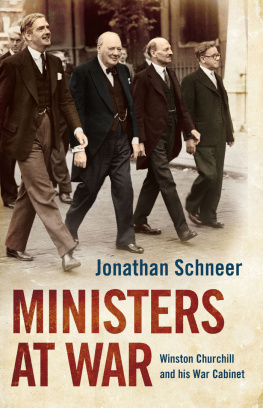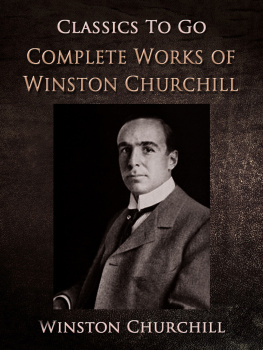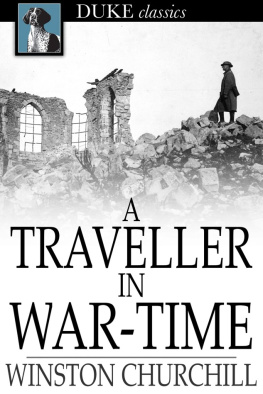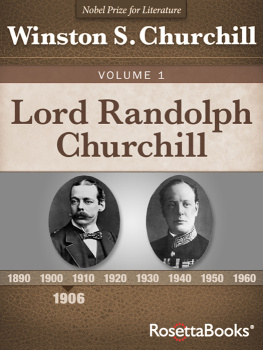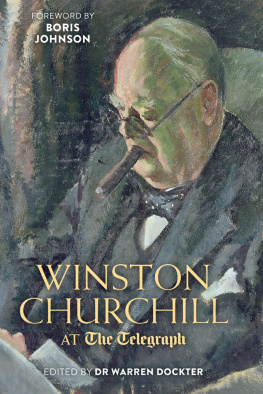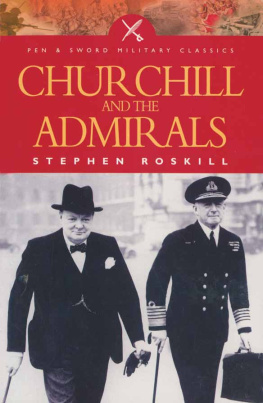Jonathan Schneer - Ministers at War: Winston Churchill and His War Cabinet
Here you can read online Jonathan Schneer - Ministers at War: Winston Churchill and His War Cabinet full text of the book (entire story) in english for free. Download pdf and epub, get meaning, cover and reviews about this ebook. year: 2015, publisher: Oneworld Publications, genre: History. Description of the work, (preface) as well as reviews are available. Best literature library LitArk.com created for fans of good reading and offers a wide selection of genres:
Romance novel
Science fiction
Adventure
Detective
Science
History
Home and family
Prose
Art
Politics
Computer
Non-fiction
Religion
Business
Children
Humor
Choose a favorite category and find really read worthwhile books. Enjoy immersion in the world of imagination, feel the emotions of the characters or learn something new for yourself, make an fascinating discovery.
- Book:Ministers at War: Winston Churchill and His War Cabinet
- Author:
- Publisher:Oneworld Publications
- Genre:
- Year:2015
- Rating:4 / 5
- Favourites:Add to favourites
- Your mark:
- 80
- 1
- 2
- 3
- 4
- 5
Ministers at War: Winston Churchill and His War Cabinet: summary, description and annotation
We offer to read an annotation, description, summary or preface (depends on what the author of the book "Ministers at War: Winston Churchill and His War Cabinet" wrote himself). If you haven't found the necessary information about the book — write in the comments, we will try to find it.
Ministers at War: Winston Churchill and His War Cabinet — read online for free the complete book (whole text) full work
Below is the text of the book, divided by pages. System saving the place of the last page read, allows you to conveniently read the book "Ministers at War: Winston Churchill and His War Cabinet" online for free, without having to search again every time where you left off. Put a bookmark, and you can go to the page where you finished reading at any time.
Font size:
Interval:
Bookmark:

MINISTERS
AT WAR
MINISTERS AT WAR
Winston Churchill
and his War Cabinet
Jonathan Schneer

A Oneworld book
First published in Great Britain and the Commonwealth by
Oneworld Publications, 2015
This ebook edition published by
Oneworld Publications, 2015
First published in the US by Basic Books,
a Member of the Perseus Books Group
Copyright 2015 by Jonathan Schneer
The moral right of Jonathan Schneer
to be identified as the Author of this work has been asserted by him
in accordance with the Copyright, Designs and Patents Act 1988
All rights reserved
Copyright under Berne Convention
A CIP record for this title is available from the British Library
ISBN 978-1-78074-613-5
eISBN 978-1-78074-614-2
Oneworld Publications
10 Bloomsbury Street
London WC1B 3SR
Stay up to date with the latest books,
special offers, and exclusive content from
Oneworld with our monthly newsletter
Sign up on our website
www.oneworld-publications.com
To Margaret, Ben and Seth
These brief notes are provided as an aid to the identification of the people discussed in this book.
AITKEN, WILLIAM MAXWELL, FIRST BARON BEAVERBROOK (18791964): A Canadian who moved to Britain before World War I, Beaverbrook made a fortune and became proprietor of the Daily Express, the Sunday Express and the London Evening Standard as well as two newspapers in Scotland. He was also an enthusiastic supporter of imperial economic cooperation and strongly supported Neville Chamberlains policy of appeasement. Nevertheless, Churchill put him in charge first of the Ministry of Aircraft Production and then the Ministry of Supply. Beaverbrook suffered from ill health, and eventually Churchill let him resign. But then Beaverbrook took up a new crusade, All Help to Russia, and supported the idea of opening a Second Front in the war.
ALEXANDER, ALBERT VICTOR (18851965): Alexander was a Labour politician who began his career as parliamentary secretary to the British co-operative movement. He served in the second Labour government (19291931) as First Lord of the Admiralty, and Churchill returned him to that position in 1940.
AMERY, LEOPOLD (LEO) CHARLES MAURICE STENNETT (18731955): A Conservative politician who advocated economic protectionism and cooperation within the British Empire, Amery served as colonial secretary under Prime Minister Stanley Baldwin from 1924 to 1929, but remained on the backbenches throughout the 1930s, partly because he did not enthusiastically support Chamberlains policy of appeasement. On May 7, 1940, he delivered a great speech against Chamberlain that helped lead to the latters downfall. A few days later, Churchill appointed him secretary of state for India.
ANDERSON, SIR JOHN, FIRST VISCOUNT WAVERLEY (18821958): Anderson, a remarkably effective and efficient civil servant who entered Parliament in 1938 independent of any party, was appointed home secretary and minister of home security by Chamberlain at the outbreak of war. When Churchill took over in May 1940, Churchill asked Anderson to remain in these posts, but he later made him Lord President, with a seat in the War Cabinet, to replace the dying Chamberlain.
ATTLEE, CLEMENT RICHARD, FIRST EARL ATTLEE (18831967): A Labour Party politician first elected to Parliament in 1922, Attlee served briefly in the Labour government of 19291931 and ascended to the party leadership in 1935. Churchill brought him into his first War Cabinet in May 1940 as Lord Privy Seal and then promoted him in 1942 to become secretary of state for the dominions and deputy prime minister. Many underestimated Attlee, mistaking his diffidence for weakness.
BEAVERBROOK:See Aitken, William Maxwell, First Baron Beaverbrook (18791964).
BEVERIDGE, WILLIAM HENRY, BARON BEVERIDGE (18791963): A prickly, ambitious and able academic and civil servant, Beveridge was appointed during the war to head a committee studying the coordination of social services. He turned this small task into a broad investigation of their deficiencies, and in the Beveridge Report made sweeping recommendations for their improvement in postwar Britain. His report caused a sensation.
BEVIN, ERNEST (18811951): Bevin, a former carter on the Bristol docks, built the Transport and General Workers Union into the largest workers organization in Europe during the interwar period. Churchill knew he needed Bevins support to make his national coalition government work and so appointed him minister of labor and then promoted him to the War Cabinet. Churchill judged Bevin and Beaverbrook to be his most dynamic and able colleagues, among an outstanding group.
BRACKEN, BRENDAN RENDALL, VISCOUNT BRACKEN (19011958): Bracken was a Conservative politician with a background in journalism and was devoted to Churchill. When the latter became First Lord of the Admiralty in 1939, he made Bracken his parliamentary private secretary. In 1941 Churchill appointed Bracken to be minister of information.
BROOKE, ALAN FRANCIS, FIRST VISCOUNT ALANBROOKE (18831963): A highly respected career soldier with much experience both of war and preparing for war, Brooke was appointed by Churchill as commander in chief of home forces during the summer of 1940, and then, in December 1941, as commander of the Imperial General Staff. Soon thereafter Brooke became chairman of the Chiefs of Staff Committee and thus the principal strategic adviser to the War Cabinet. When necessary he stood up to the prime minister.
BUTLER, RICHARD AUSTEN (RAB), BARON BUTLER OF SAFFRON WALDEN (19021982): Butler was a Conservative politician who was closely associated with the appeasement policies of Neville Chamberlain. In May and June 1940, he supported Halifax, who desired a negotiated peace with Germany. Churchill nevertheless appreciated his parliamentary skills, and far from sacking him, eventually made him minister of education. At this post Butler carried through important reforms.
CADOGAN, SIR ALEXANDER GEORGE MONTAGU (18841968): Climbing to the top position in the Foreign Office, permanent undersecretary, Cadogan advised first Halifax and then his successor as foreign minister, Anthony Eden. He sat in on War Cabinet meetings. And he kept a diary.
CECIL, JAMES EDWARD HUBERT GASCOYNE-, FOURTH MARQUESS OF SALISBURY (18611947): Belonging to the famous Salisbury political dynasty (his father had been Conservative prime minister), Cecil himself became a Conservative Party grandee and one of Britains most influential peers. He opposed Chamberlains appeasement policy. During the war, he led a watching committee that played a major role in forcing Chamberlains resignation.
CHAMBERLAIN, NEVILLE (18691940): Chamberlain was the Conservative prime minister and architect of the appeasement policies that failed to prevent World War II. He was replaced by Churchill as prime minister on May 10, 1940.
CRIPPS, SIR (RICHARD) STAFFORD (18891952): Cripps, a wealthy and successful lawyer who served in the Labour government of 19291931, veered far to the political left during the 1930s, alienating the leadership of his party, who expelled him. Churchill appointed him ambassador to Russia in 1940 and brought him into the government in 1942.
Font size:
Interval:
Bookmark:
Similar books «Ministers at War: Winston Churchill and His War Cabinet»
Look at similar books to Ministers at War: Winston Churchill and His War Cabinet. We have selected literature similar in name and meaning in the hope of providing readers with more options to find new, interesting, not yet read works.
Discussion, reviews of the book Ministers at War: Winston Churchill and His War Cabinet and just readers' own opinions. Leave your comments, write what you think about the work, its meaning or the main characters. Specify what exactly you liked and what you didn't like, and why you think so.

